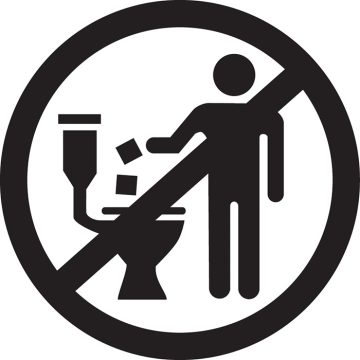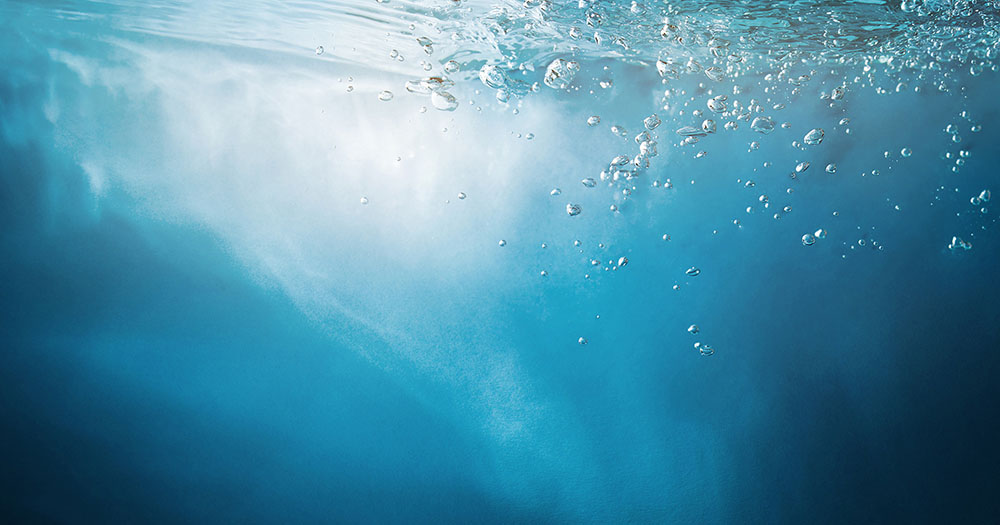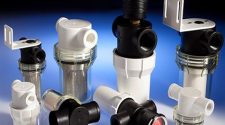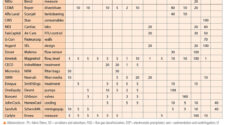Oregon’s U.S. Senator Jeff Merkley has teamed up with Maine’s U.S. Senator Susan Collins and U.S. Representatives Mary Peltola (D-AK) and Lisa McClain (R-MI-09) to introduce the Wastewater Infrastructure Pollution Prevention and Environmental Safety (WIPPES) Act. This bipartisan, bicameral bill aims to address health, ecosystem, and wastewater infrastructure concerns caused by the flushing of non-flushable wet wipes.
“When non-flushable wipes are sent through our sewage systems as a means of disposal, Oregon’s wastewater facilities face costly repairs and maintenance,” said Senator Merkley. “What’s more, these wipes are made of synthetic plastic fibers—they are not biodegradable—meaning these wipes break down into harmful microplastics. This bill is a necessary first step in making sure these products are accurately labeled so they can be appropriately disposed of, keeping our water clean and ensuring our wastewater infrastructure is safe and efficient.”
“Many consumers who use wet wipes are unaware that flushing these products creates significant problems for plumbing, wastewater treatment equipment, and septic systems,” said Senator Collins. “This legislation would require manufactures to label non-flushable wet wipes, providing consumers with the information they need to safely dispose of them. I urge my colleagues to support this commonsense legislation that will help prevent homeowners and taxpayers from having to pay for expensive repairs.”
“During the COVID pandemic, Anchorage wastewater workers reported pulling up to 6,000 pounds of wipes daily out of the sewer system,” said Rep. Peltola. “To address this issue, I’m proud to be a leader on the WIPPES Act, a common-sense bill that would take a significant step towards reducing the amount of trash that ends up in our sewers, rivers, and oceans. Every step that we can take to improve our wastewater infrastructure and marine habitats is worth it, especially when it’s as simple as adding a sentence to a package. It’s time to wipe out this problem for good.”
“Plumbing and wastewater treatment services are vital in our country, and they are put in danger whenever non-flushable wipes are flushed into that infrastructure” said Rep. McClain. “By ensuring wipe manufacturers properly label their packaging as non-flushable, consumers can help prevent the damaging consequences that lead to major breakdowns and backups.”
“INDA is proud to support the WIPPES Act. The industry is committed to responsibly managing those wipe products that should not be flushed, protecting public infrastructure and the environment.”
INDA PRESIDENT TONY FRAGNITO
The WIPPES Act addresses the pervasive but ultimately preventable problem of the flushing of non-flushable wet wipes. Many of these products are composed of manufactured plastic fibers or other strong fibers. While these products are not marketed as flushable, consumers often assume that they are and frequently flush them into sewer systems as a means of disposal. Due to their strong fibers, these types of wipes do not break down as they travel through the sewer systems. Instead, the wipes become magnets attracting fats, oils and grease and become obstructions in sewerage systems pipes that clog pumps, block sewer collection systems, and jam motors that lead to sewage backups and treatment equipment failures. They also contribute to the harmful proliferation of microplastics in our water systems.
The WIPPES Act directs the Federal Trade Commission, in consultation with the Environmental Protection Agency (EPA), the Commissioner of Food and Drugs, and the Consumer Product Safety Commission (as appropriate depending on the type of covered product involved) to issue regulations on “Do Not Flush” labeling requirements for the covered products defined in the bill, which includes baby wipes, household wipes, disinfecting wipes or personal care wipes.

This legislation is cosponsored by Senators Angus King (I-ME), Jeanne Shaheen (D-NH), Ron Wyden (D-OR), Edward J. Markey (D-MA), Richard Blumenthal (D-CT), and Elizabeth Warren (D-MA).
The WIPPES Act is endorsed by the National Association of Clean Water Agencies (NACWA), , California Association of Sanitation Agencies (CASA), Association of Nonwoven Fabrics Industry (INDA), Kimberly-Clark, Consumer Healthcare Products Association (CHPA), National Stewardship Action Council, Water Environment Federation, Procter & Gamble, and Oregon Association of Clean Water Agencies.
“Creating a uniform, national policy for labeling of ‘non-flushable’ wipes is critically important to protect sewer systems and household plumbing. Personal care wipes, while convenient for the consumer, cause serious harm to municipal sewer systems across the nation when they are improperly flushed. The water sector worked hand-in-hand with industry on this commonsense legislation that will provide clarity for the consumer, protect sewer workers, and avoid millions in infrastructure damage nationwide,” said Adam Krantz, CEO of the National Association of Clean Water Agencies (NACWA).
“CASA applauds Senator Merkley and Senator Collins and Representative McClain and Representative Peltola for introducing the WIPPES Act. This bipartisan legislation addresses the flushing of non-flushable wipes that has plagued the clean water sector for decades and protects the billions of dollars ratepayers have invested to clean up our waterways and protect public health. Lacking proper disposal instructions, consumers unwittingly end up flushing these single-use, synthetic wipes that can clog pipes, pumps, and treatment equipment. CASA appreciates federal leadership in establishing commonsense “Do Not Flush” labeling practices designed to address this problem at the source and ensure these wipes do not make their way into our wastewater systems,” said Executive Director of the California Association of Sanitation Agencies Adam Link.
“INDA is proud to support the WIPPES Act. The industry is committed to responsibly managing those wipe products that should not be flushed, protecting public infrastructure and the environment,” said INDA President Tony Fragnito, “The passage of this important legislation will have positive impacts on the environment, wastewater agencies, consumers, and manufacturers by providing clarity on labeling requirements to consumers and national uniformity for manufacturers.”
“Prominent ‘Do Not Flush’ labeling, visual symbols on packages and robust education programs are critical to raising consumer awareness about the proper disposal of these products,” he continued. “INDA applauds the sponsor’s vision to address this issue in a comprehensive and meaningful way. We look forward to our continued collaboration with the wastewater sector and other stakeholders to support this bill’s swift passage in Congress.”
“Kimberly-Clark strongly supports the WIPPES Act, which would create a national “Do Not Flush” labeling requirement for non-flushable wipes. If enacted, the WIPPES Act would help prevent costly damage to plumbing or municipal wastewater systems caused by the improper flushing of wipes not designed to break down in such systems. The WIPPES Act is a commonsense solution to an entirely preventable problem. Kimberly-Clark greatly appreciates Sen. Merkley, Sen. Collins, Rep. McClain, and Rep. Peltola for reintroducing this bicameral, bipartisan bill,” said Lorraine Riffle Caron, Vice President, Global Government Relations, Kimberly-Clark.
“CHPA applauds Senators Merkley and Collins and Representatives McClain and Peltola for introducing a common-sense solution to an issue that has been debated by several U.S. states for some time now. By addressing the non-flushable wipes issue in Congress, we can avoid a medley of differing state laws that will only lead to consumer confusion. This legislation will go a long way in addressing the challenges facing wastewater infrastructure, human health, and the natural environment,” said David Spangler, CHPA’s Senior Vice President, Legal, Government Affairs & Policy.
“The National Stewardship Action Council is thrilled to see the introduction of the WIPPES Act. The legislation’s common sense labeling requirements are a critical step forward to addressing the pervasive problem of the flushing of nonflushable wipes. It is time to pass this bipartisan legislation and spare Americans from being misled to think these wipes are flushable that results in unnecessary stress and costly repairs,” said Heidi Sanborn, Founding Executive Director, National Stewardship Action Council.
“The Water Environment Federation (WEF) applauds Sen. Merkley and Sen. Collins and Rep. McClain and Rep. Peltola for introducing the Wastewater Infrastructure Pollution Prevention and Environmental Safety Act (WIPPES) in the U.S. Senate and U.S. House of Representatives. WEF’s members are on the front lines of combating the problems wipes cause when flushed down toilets and into sewer systems. Water professionals strongly support the discontinued flushing of these wipes, and ratepayers will also benefit by not continuing to subsidize the cost of repairing the problems caused by wipes. Congress should swiftly pass the WIPPES Act,” said Walt Marlowe, P.E., CAE, Executive Director of WEF.












